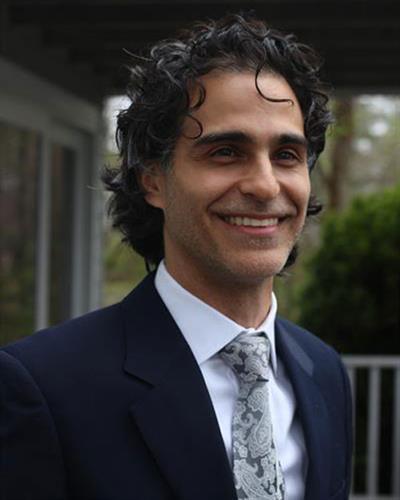
Tisch Library's "Affordable Course Materials Profiles" feature interviews with faculty & instructors who have received an Affordable Course Materials Award.
This interview is with Professor Vesal Dini, lecturer in the Department of Physics & Astronomy. Professor Dini received an award for Fall 2023.
What department do you teach in? Which classes do you most commonly teach?
I am delighted to be a member of the department of physics and astronomy, where my primary responsibilities are to teach the introductory sequence of courses, from mechanics to electricity and magnetism to modern physics. I employ learning assistants as well, and teach a STEM Learning Assistant seminar to help learning assistants more broadly to support their instructional roles.
Briefly describe your project to use or create more affordable course materials for students.
I run reformed physics courses building off of a large body of education research and Einstein’s view that “The whole of science is nothing more than a refinement of everyday thinking” (Einstein, 1950). In other words, in order to learn physics, students need to do physics! In this respect, they have to reorient their approaches from a focus on reproducing correct answers for an authority, towards the pursuit of coherent understanding for themselves. To encourage this shift, the course itself is structured differently such that students are tasked to study particular content outside of class and then come in ready to work on ideas. This is the value added of the university---to create learning spaces where students can interact and think together! Working on ideas means engaging disciplinary practices—as a physicist might—in small and large groups, while being coached by more experienced instructors.
What motivated you to use these new materials?
Since collaboration is essential to doing science and learning it, and it is at the heart of most activities within the course, why not the content delivery phase as well. For this reason, I moved away from traditional prelecture videos to a freely available non-traditional textbook embedded within a platform that allows for collaboration around the readings (Persuall). So, in the process of students’ interacting with content, they also can interact with others’ comments in a way they find meaningful, while sharing a few ideas/questions/confusions of their own. I value this work and give students credit for it.
A second reason to move was related to the actual content. The non-traditional textbook is more aligned with best practices promoted in physics education research. A third was that the cost of the prelecture platform was going up (around $150 for 1 year subscription).
How were students impacted by the new materials? What was their reaction?
This is a matter that I am very interested in studying systematically. Anecdotally, there are indications that a majority of students did not appreciate the textbook or platform. Even while most of my colleagues are impressed by the textbook and its presentation, the students did not appreciate the task of reading, nor the style of the presentation. This has been a bit shocking to me, given that I think the book is extremely well crafted. But again, I have to study this from my evaluations this semester.
Do you have any advice for other faculty considering a switch to open and affordable course content?
Regardless of content or modality of delivery (e.g., textbook, online video, live lecture), I am now certain that a majority of students need to be coached in how to approach that phase productively. They are used to memorize/regurgitate modalities, of passive receiving that mostly has them verbatim copying ideas and/or a meeting a goal of getting through as fast as possible. We need to help them become active participants in processing knowledge, of explaining in their own words, actively bringing in their own experiences, intuitive knowledge and common sense ideas.